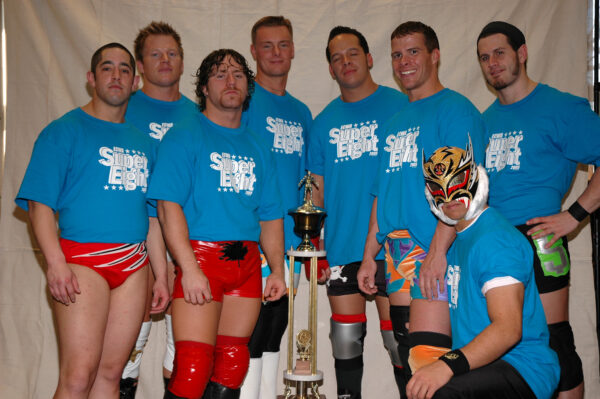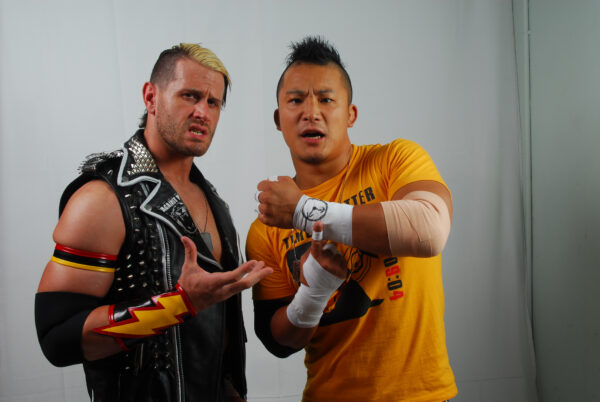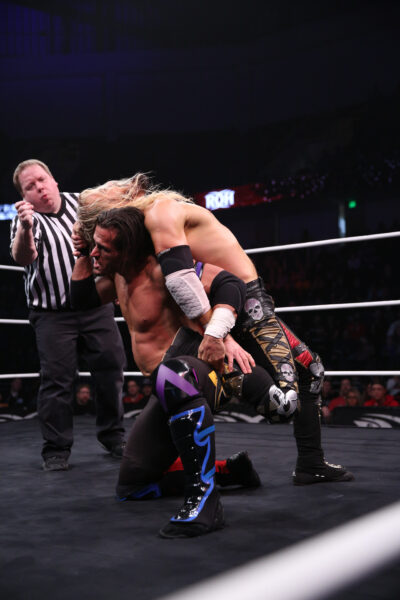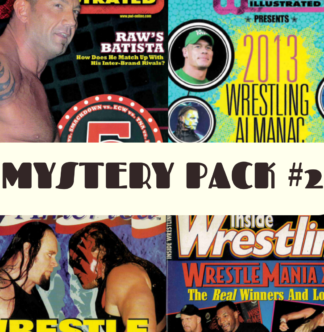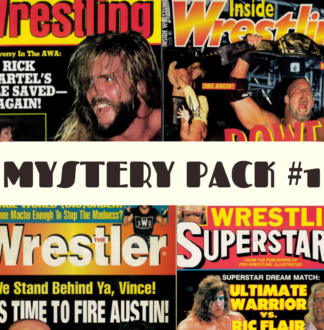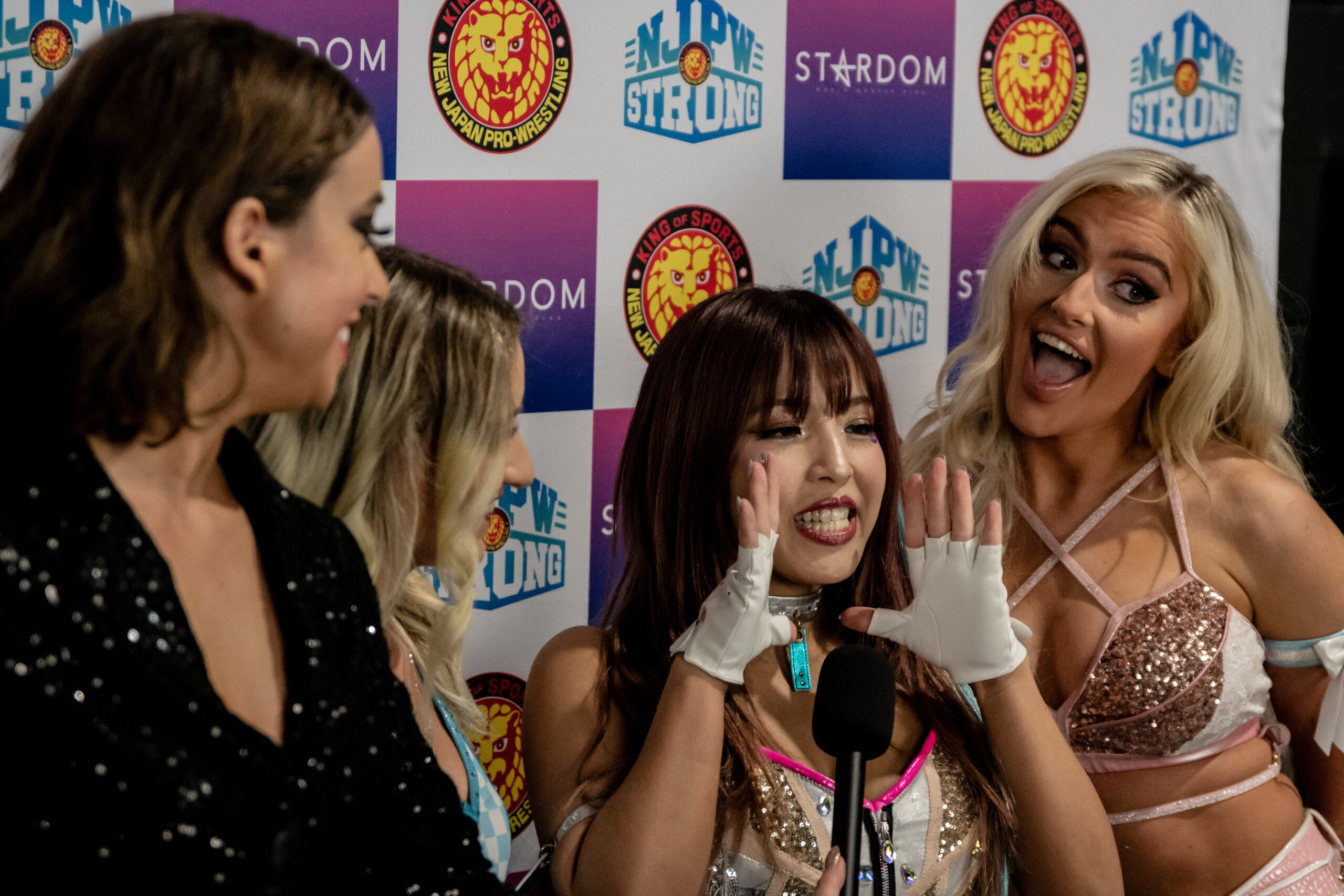
THOUGH REGARDLESS OF where MINA SHIRAKAWA ranks, fans demand more of her, “The Venus'” spot in the 2024 “PWI Women’s 250″ mirrored how much fans clamored for the 36-year-old Stardom sensation.
Her year was fantastic. Shirakawa became a phenomenon in All Elite Wrestling as the savior to her tag team partner and friend Mariah May. She traveled extensively across the globe to assert her dominance. She challenged and defeated some of the best wrestlers in the world. All of this without sacrificing her sense of self or originality. Authentically Mina.
In celebration of Shirakawa’s spectacular 2024—and ahead of her appearances with May on AEW Rampage and at Full Gear—we present her written interview with PWI’s KRISTEN ASHLY.
ASHLY: Congratulations on making it to number 16 on the “PWI Women’s 250″! You jumped 35 spots to make the top 20. What do you think changed this year that created such a big leap?
SHIRAKAWA: That jump is because I’m the most international women’s professional wrestler; for most of the year I’ve been flying to wrestle on weekdays in the United States and then on weekends back in Japan. I think the reason I’ve managed to rank so high this year is because there’s a lot of wrestling fans that know who I am now.
ASHLY: You wrestled in the U.K. for the first time this year. In your first appearance for RevPro, you defeated Dani Luna for the RevPro Undisputed British Women’s title. Are there any differences between wrestling British style vs. joshi? Any differences when wrestling in North America?
SHIRAKAWA: I think that British wrestling is quite similar to Japanese wrestling, and the fans were happy when we had a technical wrestling match. One of my signature moves is the figure four, and the fans erupted in cheers when I tapped the champion out with it to win the title. It’s really gratifying to know that my decision to become a professional wrestler wasn’t a mistake. In comparison, I think American-style wrestling is more dynamic. I don’t really change my style of wrestling when it comes to big matches, but I’ll change the types of moves that I use.
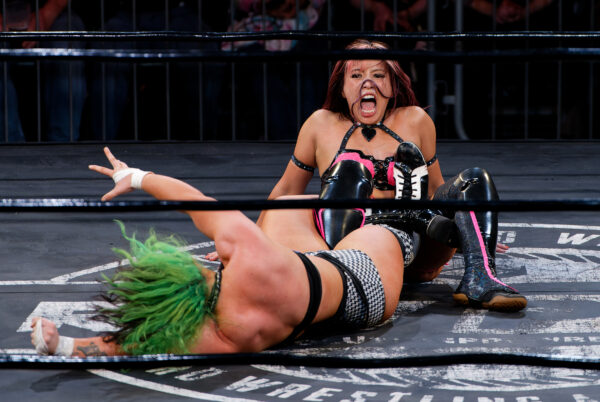
ASHLY: You’re returning to the U.S. in what is being reported as a longer tour. Are those reports true? What are your hopes for this time in the U.S.?
SHIRAKAWA: I’ve been making Mariah (May) wait a lot, and I plan to stay in the United States until her feelings of loneliness are gone. I’m here to celebrate her championship win and wrestle a lot of matches as [our team] Rose Gold.
ASHLY: Mariah has turned into what you could call a primadonna. Has your friendship changed since she turned on her idol, Toni Storm?
SHIRAKAWA: Our friendship hasn’t changed in the slightest. We’re still best friends forever. However, I am a little concerned that she’s acting a bit weird recently … but I think with me by her side, she’ll calm down again soon enough.
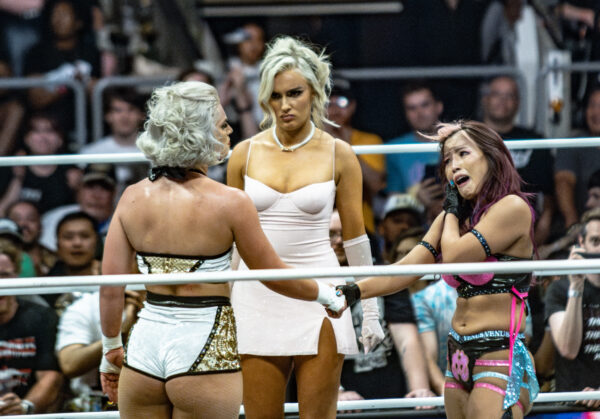
ASHLY: Your triangle with Mariah and Toni created a huge title opportunity for you at Forbidden Door 2024. Are you still hungry for the AEW Women’s title? Would you face Mariah for it?
SHIRAKAWA: I know that Mariah has worked so hard, both in AEW and in Stardom. Right now, I just want to be able to celebrate her championship win with her. The two of us overcame a lot of hardships together in Japan, so I’m celebrating with her as if I’d become champion.
ASHLY: Since Mariah’s betrayal, you’ve tagged with Toni Storm. Has your relationship with Toni changed? Do you feel closer because of Mariah?
SHIRAKAWA: Well … I’d still like all three of us to be friends. I know that Toni must’ve been really hurt after Mariah betrayed her like that, so I wanted to give her my emotional support. I believe that if I love them both, then we’ll all be able to be friends again. Toni and I are good friends back in Japan. Not only in matches, but privately as well.
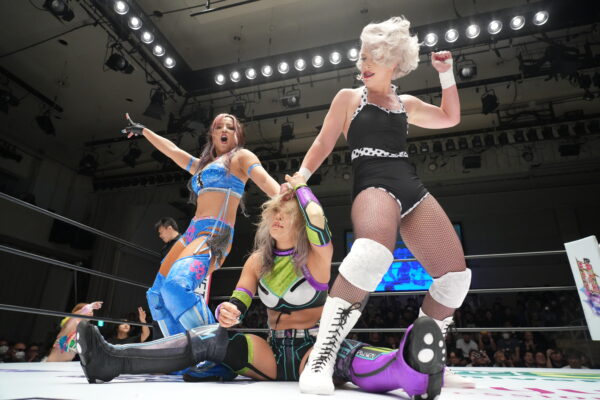
ASHLY: Within Stardom, you’re well-known for amazing tag team wrestling. You won the Artist of Stardom championship with Maika and Xena in March. Do you feel differently about tag team wrestling over singles action? Do you have a preference?
SHIRAKAWA: Xena and Maika are both powerhouse wrestlers, and when the three of us are in the ring together, we’re very smart and synchronized—we defeat anyone! But honestly, I prefer singles matches to tag team matches. With tag team matches you have the support of your partners, whereas in singles matches you have to try and manage everything by yourself. I love the feeling of tension that comes along with singles matches because I think to myself, “How am I meant to take down a bigger opponent if my strength is much less?” It’s like playing chess within your own mind, and I enjoy it a lot.
ASHLY: Stardom has really opened itself to work with international partners, and you seem to be a main beneficiary of that advantage, appearing everywhere. Do you feel it’s easy working with other companies? Have you learned anything in the process?
SHIRAKAWA: To be frank, it’s difficult! It kind of feels like I’m starting a new life all over again. Everyone in Stardom already knows the kind of person that Mina Shirakawa is—the fans, the staff, and other wrestlers. Yet I love meeting other wrestlers when I go to different companies. You have to start off by getting to know others; when I’m in attendance at shows run by other companies, I make the effort to talk to as many staff members as possible instead of just sitting in the waiting room. I have to study the matches of my opponents because I’m not familiar with their movesets. But by watching an AEW show from beginning to end, I can see the types of things that I can add to the show, so I always make sure to watch it the whole way through … and it helps me study English, too.
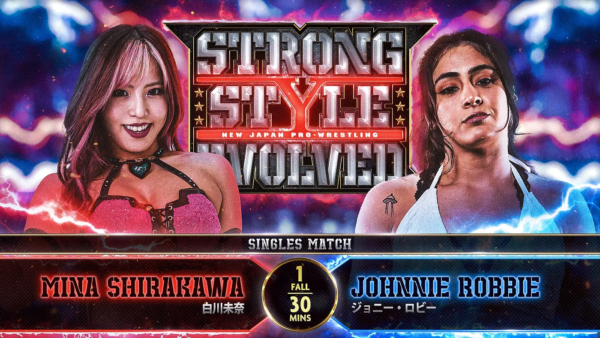
ASHLY: You’re wrestling Johnnie Robbie at Strong Style Evolved. Mercedes Moné also happens to be main-eventing. Are there any plans to challenge her for either of her belts at the show?
SHIRAKAWA: I’ve been friends with Mercedes Moné for around five years now, but we’ve never had the opportunity to meet in the ring, even though I’ve always wanted to wrestle her. I’d like to challenge her when I’m at my best mentally. I don’t know when that will be, though.
While Shirakawa’s talent is undeniable, one important aspect of her greatness is her ability to stay true to herself, despite pressures otherwise. It’s a trait that many fans relate to and hold on to for inspiration.
ASHLY: In a recent installment of my PWI women’s wrestling column (“The W Column”), I explained how inspirational you are to women with your refusal to hide from your past. How is staying true to yourself important in wrestling? What would you say to a woman who is feeling shame for who they are?
SHIRAKAWA: There are no answers in wrestling, so you have to go through with the decisions that you believe are the best ones. Really, it’s a test to see how much you believe in yourself. With life, people will try and tell you that you can’t do this, or that you can’t do that. You can’t let yourself be fooled by those people. I hate the saying, “This is how a woman should be.” I want to face the world as a human being regardless of what my gender is. You’re the only person responsible for what happens in your life, and you’re the only person who can make it interesting. If there’s no example of that, then there’s no shame in beginning now. No matter when you start, it’s never too late; you can make it work if you try your absolute hardest!
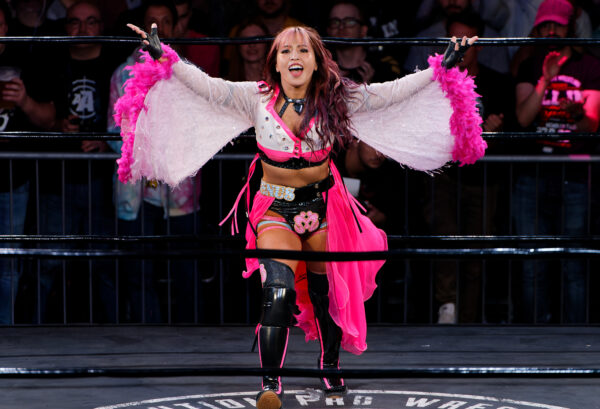
The past year was a pillar year in the career of Mina Shirakawa. The fans continue to chant “We Want Mina,” and Shirakawa is more than happy to oblige. The future looks bright for “The Venus.”



